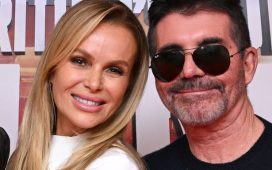When EU leaders start the debate over who should get the bloc’s most senior roles, they will find that a few of them are on the brink of losing their own seat at the table.
The group of 28 attending Tuesday evening’s post-elections summit in Brussels will include a Greek leader facing early elections, a British leader on her way out, an Austrian interim leader, four other lame ducks and a German chancellor who no longer leads her own party. In addition Donald Tusk, who as European Council president chairs the conclave, is soon to step down.
The imminent changes to the EU’s council table mean that contentious issues affecting the bloc’s next legislature may be decided by outgoing leaders — or take longer to be agreed. Difficult decisions include choosing new leadership for the policy-setting European Commission, the political European Council and the single currency’s European Central Bank, as well as defining the union’s policy priorities for the next five years.
Andrew Duff, president of the Spinelli Group of European federalists, said it was “crazy” for Mr Tusk to try to forge an agenda when he and a number of national leaders were on the way out. “That ought to be up to his successor,” he said. “It’s a false trail, frankly.”
The disruption presents an opportunity to some, notably French president Emmanuel Macron, whose En Marche party performed strongly in the European elections, and Pedro Sanchez, the Spanish prime minister, who in the past few weeks triumphed in both the EU and national polls. The two men dined in the Élysée palace on Monday night to coordinate strategy.
While the departing leaders are fairly evenly spread around Europe’s political families, one of the main effects of the changes may be to weaken the ranks of an already depleted European People’s Party. Europe’s main centre-right force accounted for nine national leaders before Sebastian Kurz of Austria lost a no-confidence vote on Monday, down from an historic high of 16 in 2012.
The Austrian chancellor, until recently seen as the standard-bearer for a new brand of EU conservatism, will be absent after being ousted in a confidence vote on Monday — he will run in elections in September. Hartwig Löger, the country’s interim leader, will be at Tuesday evening’s gathering in his place.
Mr Kurz’s departure weakens Angela Merkel, Germany’s chancellor, who faces the task of helping Manfred Weber, a Bavarian Christian Democrat, to win the Commission presidency for the EPP despite the opposition of Mr Macron.
Mr Kurz was a staunch supporter of Mr Weber but Hungary’s prime minister Viktor Orban, an EPP leader who will still be around the summit table, is firmly opposed to the German’s ambitions, describing him as “weak”.
Those staring at the political exit door alongside Mr Kurz include British premier Theresa May, who will step down as Conservative party leader next week, and Belgian prime minister Charles Michel, whose liberal party fared poorly in the country’s general election on Sunday after a surge in support for Flemish nationalists.
Meanwhile, Greek prime minister Alexis Tsipras has called a general election in the wake of EU elections, while Leo Varadkar, the Irish taoiseach, has not ruled one out.
Finland’s prime minister Juha Sipilä is also on the way out, with coalition negotiations likely to give power to his social democrat rivals. Lars Lokke Rasmussen, Denmark’s prime minister, faces an election next week, while Dalia Grybauskaite will step down as Lithuania’s president in July after reaching constitutional term limits.
The upheaval shows the impact of the rise in support for far-right parties and ebbing support for some mainstream groups. The turbulence also adds an extra layer of intrigue to how the EU27 will handle Brexit should the October 31 deadline loom with no agreed course in London.
“The churn is there,” said Prof Brigid Laffan, an EU affairs specialist at the European University Institute, noting that it had the potential to make a “complex set of challenges more complex”.
She added: “The question is: will EU politics have settled by the end of September in a way that the union can handle the UK issue?”
All change at the top
On the way out
Theresa May (UK, has announced her resignation)
Charles Michel (Belgium, unlikely to stay on as prime minister following poor result in general election)
Dalia Grybauskaite (Lithuania, new president to be inaugurated in July)
Juha Sipila (Finland, coalition talks in progress, new prime minister likely to be drawn from the centre-left)
Jean-Claude Juncker (European Commission, mandate set to end November 1)
Donald Tusk (European Council, mandate set to end December 1)
Possible trouble ahead
Alexis Tsipras (Greece, general election in July)
Lars Lokke Rasmussen (Denmark, general election in June)
Leo Varadkar (Ireland, possible early elections)
Pending
Hartwig Löger (Temporary Austrian prime minister following vote of no-confidence against Sebastian Kurz)














